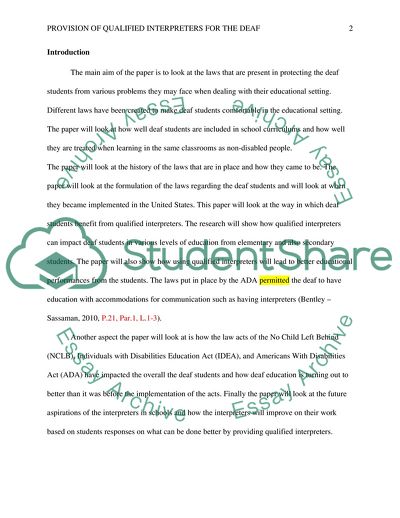Cite this document
(Providing Qualified Interpreters for Deaf Students According to NCLB, IDEA and ADA ACTS Report Example | Topics and Well Written Essays - 2750 words, n.d.)
Providing Qualified Interpreters for Deaf Students According to NCLB, IDEA and ADA ACTS Report Example | Topics and Well Written Essays - 2750 words. https://studentshare.org/education/1862884-8ps-in-lawsacts
Providing Qualified Interpreters for Deaf Students According to NCLB, IDEA and ADA ACTS Report Example | Topics and Well Written Essays - 2750 words. https://studentshare.org/education/1862884-8ps-in-lawsacts
(Providing Qualified Interpreters for Deaf Students According to NCLB, IDEA and ADA ACTS Report Example | Topics and Well Written Essays - 2750 Words)
Providing Qualified Interpreters for Deaf Students According to NCLB, IDEA and ADA ACTS Report Example | Topics and Well Written Essays - 2750 Words. https://studentshare.org/education/1862884-8ps-in-lawsacts.
Providing Qualified Interpreters for Deaf Students According to NCLB, IDEA and ADA ACTS Report Example | Topics and Well Written Essays - 2750 Words. https://studentshare.org/education/1862884-8ps-in-lawsacts.
“Providing Qualified Interpreters for Deaf Students According to NCLB, IDEA and ADA ACTS Report Example | Topics and Well Written Essays - 2750 Words”. https://studentshare.org/education/1862884-8ps-in-lawsacts.


